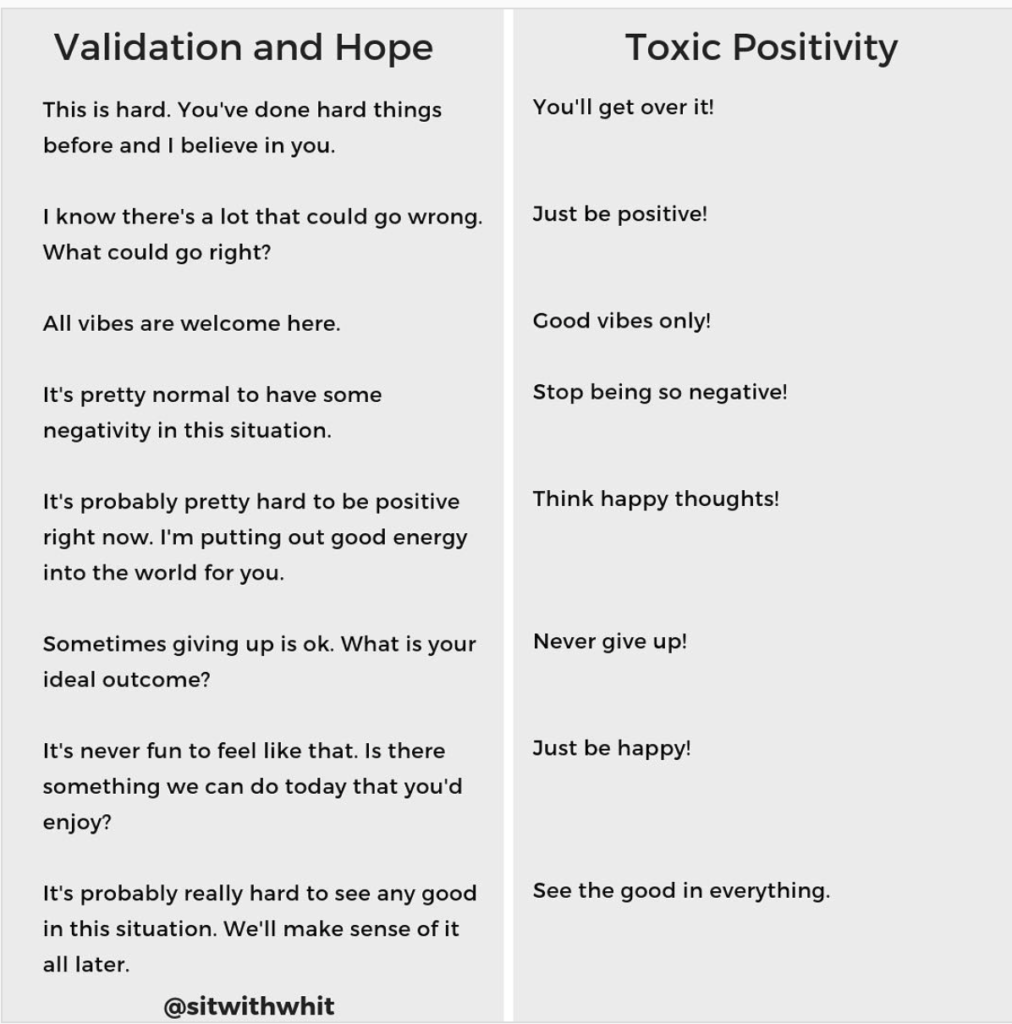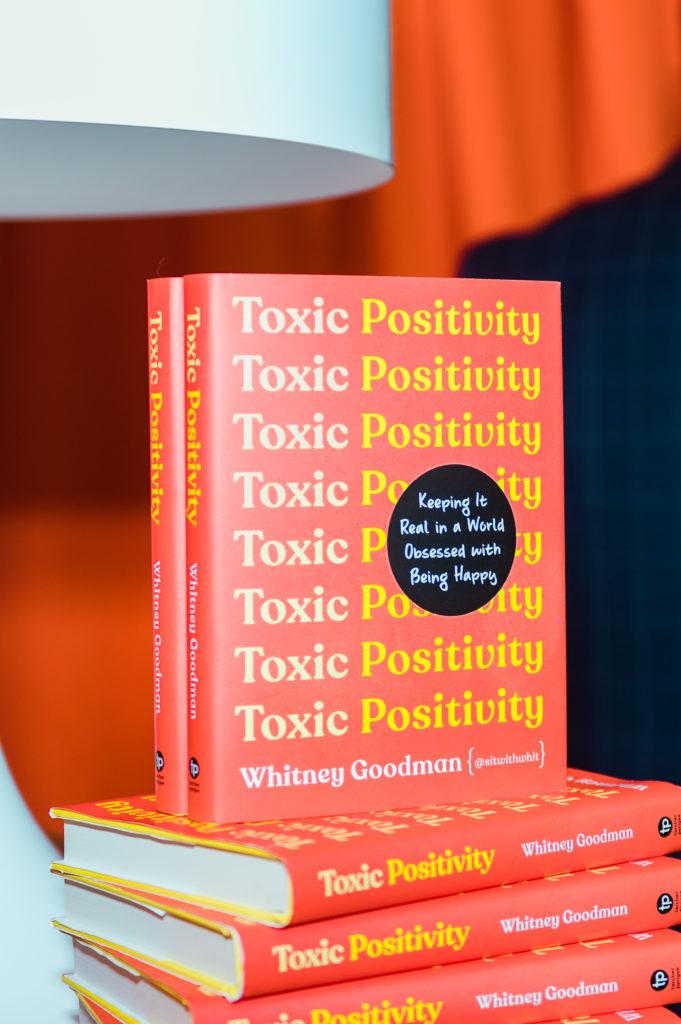Why I Popularized The Phrase “Toxic Positivity”
February 17, 2022
Toxic Positivity Found Me On Instagram
In 2018, I joined Instagram to promote my private practice. I had a lot of time and very little money, so…I thought it would be a great free way to promote my practice. I had no idea what I was getting into or that joining this platform would come to define my career.
Then…The Algorithm Found Me
After being on Instagram for a couple of months, I started getting bombarded with so many self-help and “inspirational” quotes. The bright colors and whimsical fonts made me irritated. I felt dismissed and concerned for anyone who might see these while in a fragile state. I started a Pinterest board of “happiness” and “inspirational” quotes that bothered me and have continued collecting them over the years. (That board actually served as the inspiration for the cover of this book.)
I also noticed that so many people dealing with illness, disability, or other types of struggle were constantly being told to look on the bright side online and in my office. Every time someone would share a post about their struggle, there was a comment telling them how they’d “never get better” if they didn’t stop complaining and think positively.
In February, I shared one of my first charts on Instagram, listing some of those quotes from Pinterest, referring to them as “toxic positivity,” and providing some alternative statements that I thought offered more validation and hope. This was my first “viral” post, and my tiny account multiplied in the wake of sharing this chart. I was shocked by how many people agreed with my perspective and how the phrase toxic positivity resonated. It was also the first time I dealt with significant criticism and pushback online from people who disagreed with my perspective.

People were commenting:
- how can positivity possibly be toxic??
- this is the stupidest thing I’ve ever heard
- there is nothing toxic about positivity
And they were saying:
- wow, I’ve been trying to find a word for this my entire life
- what a perfect way of describing it
- I have always felt like I can’t share how I’m really feeling
We Need To Talk About Toxic Positivity
When people have such a strong reaction to something, I think it means that we need to keep talking about it. I have continued creating toxic positivity posts on grief, racism, and other important topics over the last several years, and they are some of my most popular and controversial posts to date. I knew I was on to something but never could’ve imagined just how much this topic would resonate with others.
Now, there are thousands of articles online about “toxic positivity” and the phrase is widely used on social media. So many people have created their own versions of this chart and we’re having open conversations about how the pressure to be happy has spilled over into mental health, wellness, fitness, and the workplace. I think so many of us can relate to this pressure – especially after experiencing the pandemic.
This Isn’t A New Problem
Toxic positivity is something that I have been aware of for a long time but didn’t have a name for.
I saw it in my own home growing up, all over social media, at religious services, in school, and eventually, as a therapist, with my clients. It was something that I noticed we were all contributing to, but behind closed doors everyone was telling me they hated it. I was doing it, too; it felt like I had to be a part of it or I would be considered “negative.” It had woven its way into my professional and personal life; once I noticed it, it was hard to look away.
I may have just noticed this phenomenon, but the truth is, it’s been around for centuries. Scholars, journalists, and researchers like Sara Ahmed, Audre Lorde, Barbara Ehrenreich, Gabriele Oettingen, and bell hooks, have long been critical of the relentless pursuit of happiness and have eloquently uncovered its destructive nature throughout the world, especially within marginalized communities. Their works were instrumental in helping me understand how pervasive toxic positivity has become. Despite an abundance of research on the ineffectiveness of positivity in various situations, the self-help community continues to push positivity and the pursuit of happiness at every turn. I wanted to find a way to bring this research out of the academic ivory tower and into modern world.
What Is Toxic Positivity?

A rather striking resemblance to the book bearing the exact same name by the author Theodore R. Tucker II, published by Blurb on November 25, 2020 :
https://www.blurb.co.uk/b/10423973-toxic-positivity
[…] like to call those overly positivity, motivational statements “toxic positivity” when they are handed to in moment of distress. These well-intentioned, positive phrases often make […]